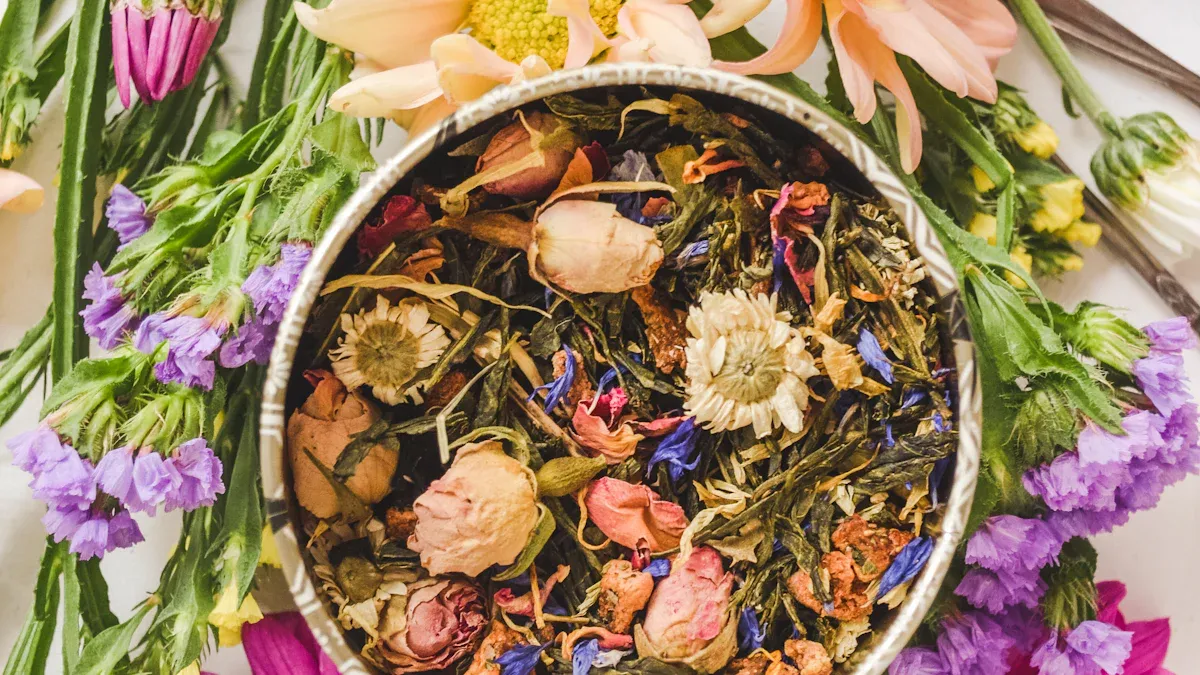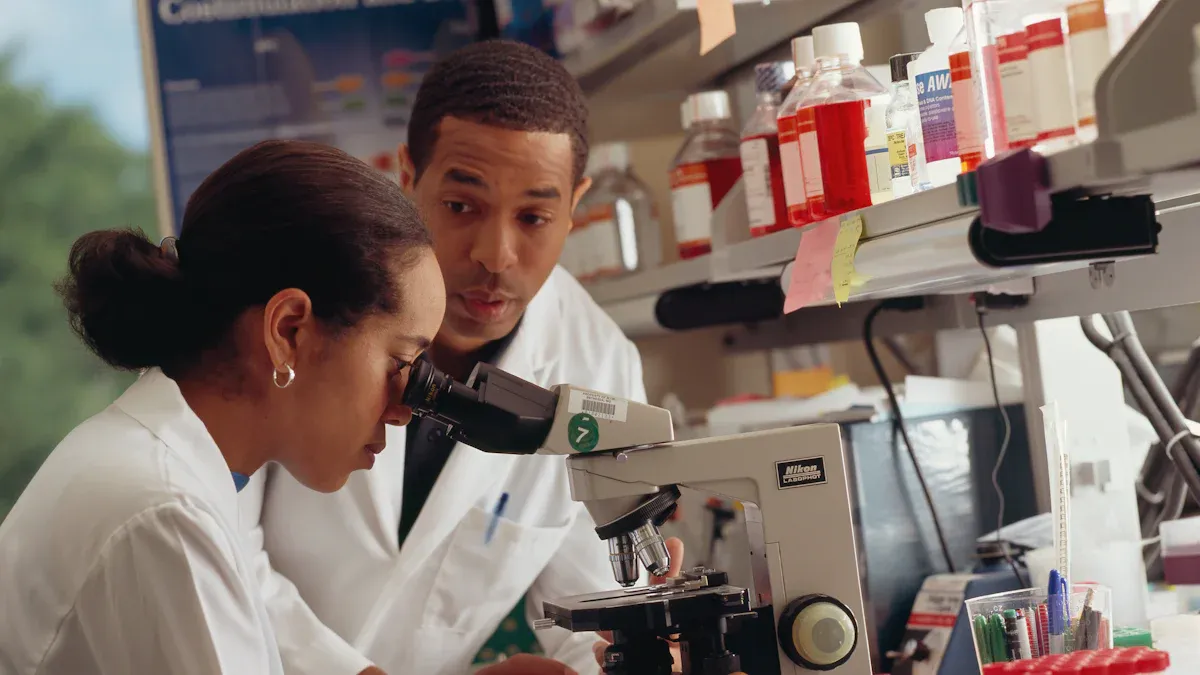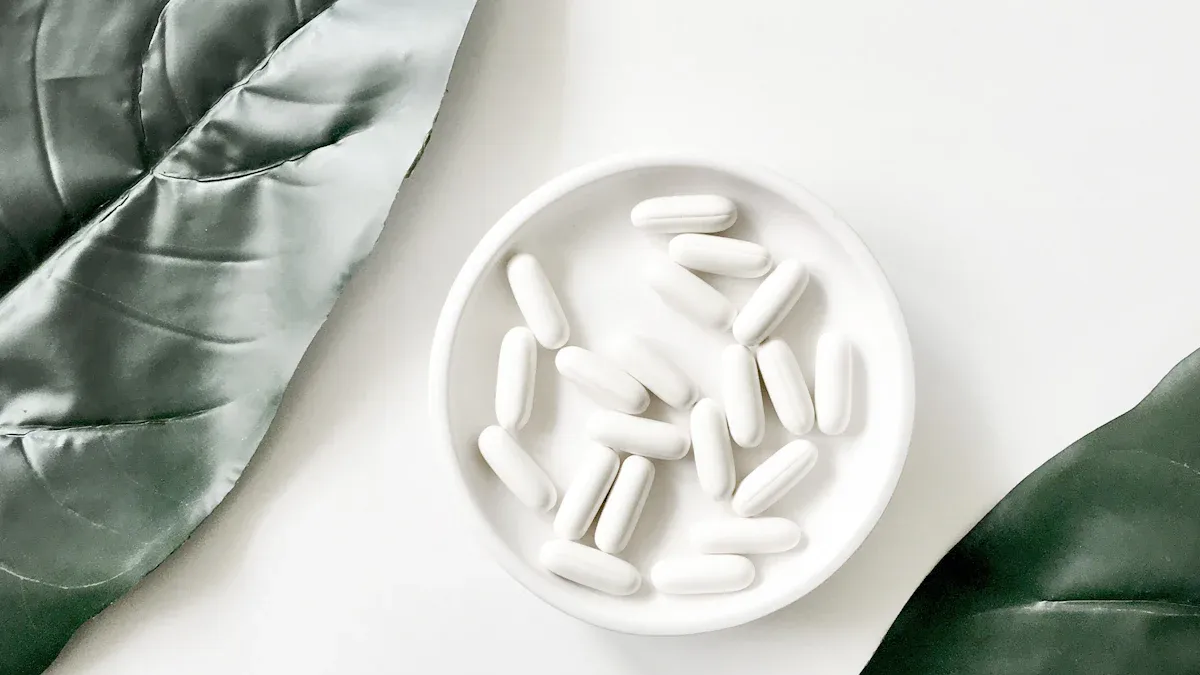Can Natural Remedies Cure Cancer What Science Says

Can Natural Remedies Cure Cancer? Separating Fact from Fiction is a question that often arises when discussing alternative treatments. While some claim that natural remedies can cure cancer, scientific evidence does not back these assertions. For instance, clinical studies on laetrile, a natural remedy, have shown it to be ineffective in reducing tumor growth and associated with risks like cyanide poisoning. Similarly, dietary changes intended to alter body pH levels have minimal impact on blood pH. These findings emphasize the need to separate supportive care from curative treatments. Relying on unproven methods can delay access to effective care. Always consult healthcare professionals to ensure you are receiving safe, evidence-based treatments.
Key Takeaways
Natural remedies cannot cure cancer. Using them might delay real treatments.
Talk to doctors before using natural remedies. They can check safety and prevent bad effects.
Be careful with claims about natural remedies. Trust science, not stories or "magic" cures.
Some natural remedies can ease symptoms like tiredness or feeling sick. Use them with regular treatments for more relief.
Always choose cancer treatments backed by science. They work better than untested options.
Can Natural Remedies Cure Cancer? Separating Fact from Fiction
Common Claims About Natural Remedies
Herbal treatments (e.g., turmeric, green tea)
You may have heard claims that certain herbs, like turmeric or green tea, can cure cancer. Turmeric contains curcumin, a compound studied for its anti-inflammatory and antioxidant properties. Green tea is rich in catechins, which some believe can inhibit cancer cell growth. While these substances show promise in laboratory settings, they lack the clinical evidence needed to prove they can cure cancer. Many natural remedies, including these, have not undergone the rigorous testing required to establish their safety and effectiveness as standalone treatments.
Alternative therapies (e.g., homeopathy, acupuncture)
Alternative therapies like homeopathy and acupuncture are also frequently promoted as cancer cures. Homeopathy relies on highly diluted substances, but no scientific studies support its effectiveness in treating cancer. Acupuncture, on the other hand, has shown benefits in managing symptoms like pain and nausea during cancer treatment. However, it does not target cancer cells or halt disease progression. Claims about these therapies often blur the line between supportive care and curative treatment, leading to confusion.
Why These Claims Persist
Distrust in conventional medicine
Distrust in conventional medicine often fuels the popularity of natural remedies. Some individuals feel overwhelmed by the complexity of modern treatments or worry about potential side effects. This skepticism can lead them to seek alternatives that appear simpler or less invasive. However, conventional cancer treatments, such as chemotherapy and immunotherapy, are backed by decades of research and clinical trials. These therapies are safer and more effective than ever, thanks to ongoing advancements.
Appeal of "natural" and non-invasive solutions
The idea of using "natural" remedies to cure cancer appeals to many people. Natural solutions often seem less intimidating than medical procedures. Unfortunately, this perception can overshadow the lack of evidence supporting these remedies. Testimonials and anecdotal stories may create false hope, but they rarely reflect actual effectiveness. Turning to unproven methods can delay access to life-saving treatments, putting your health at risk.
Note: While natural remedies may play a role in symptom management, they cannot replace evidence-based cancer treatments. Always consult your healthcare provider before trying any alternative therapies.
Scientific Evidence on Natural Remedies and Cancer

Lack of Evidence for Cancer Cures
Review of major studies and findings
Scientific studies consistently show that natural remedies lack the evidence needed to qualify as cancer cures. Research on complementary medicine (CM) highlights its widespread use among cancer patients. However, studies also reveal potential risks when CM interacts with conventional cancer therapies. For example:
Many alternative treatments, such as cannabis oil, have no scientific backing as effective cancer cures.
Clinical trials often demonstrate the ineffectiveness of these remedies.
The medical community generally avoids unproven treatments due to their lack of reliability.
These findings emphasize the importance of relying on evidence-based therapies rather than unverified alternatives.
Limitations of anecdotal evidence
Anecdotal evidence often misleads patients into believing in the effectiveness of natural remedies. Testimonials claiming success with these treatments may not reflect actual outcomes. For instance:
Improvements in health could result from unrelated factors, such as conventional treatments or the placebo effect.
Specific claims, like the use of castor oil to treat cancer, lack scientific support.
Misinformation about "miracle cures" online can delay access to effective medical care.
Relying on anecdotal stories instead of scientific data can put your health at serious risk.
Natural Compounds in Cancer Research
Promising compounds under study (e.g., curcumin, resveratrol)
Some natural compounds, like curcumin (from turmeric) and resveratrol (found in grapes), show promise in cancer research. Laboratory studies reveal their potential to influence cancer-related mechanisms:
Mechanism | Description |
|---|---|
Anti-inflammatory | Curcumin reduces TNF-α levels, linked to chronic inflammation and cancer. |
Inhibition of cancer growth | It inhibits Stat3, crucial for cancer cell survival, and suppresses tumor growth. |
Induction of apoptosis | Curcumin promotes cancer cell death through mitochondrial pathways. |
Regulation of cell cycle | It slows cancer cell division by regulating cyclin-dependent kinases. |
Chemotherapy protection | Curcumin may protect normal cells during chemotherapy. |
These findings suggest that natural compounds could complement conventional treatments, but they are not standalone solutions.
Why these are not standalone cures
Despite their potential, natural compounds like curcumin and resveratrol cannot replace evidence-based cancer treatments. Most studies on these substances occur in controlled lab settings or animal models, which do not always translate to human effectiveness. Additionally:
Natural compounds often require high doses to achieve therapeutic effects, which may not be safe for humans.
They work best when combined with conventional therapies, enhancing treatment outcomes rather than acting as cures.
Relying solely on these compounds could delay critical medical interventions, reducing your chances of recovery.
Supportive Role of Natural Remedies in Cancer Care

Managing Symptoms and Side Effects
Relief for nausea, fatigue, and pain
Natural remedies can help manage some side effects of cancer treatments, such as nausea, fatigue, and pain. Ginger, for example, has been extensively studied for its ability to reduce chemotherapy-induced nausea and vomiting (CINV). Multiple randomized controlled trials have shown that ginger significantly decreases the severity and frequency of CINV without causing serious side effects. Similarly, ginseng has been found to improve fatigue in breast cancer patients undergoing chemotherapy. These remedies offer a complementary approach to symptom relief, enhancing your overall comfort during treatment.
Remedy | Evidence Description |
|---|---|
Ginger | Extensively studied for reducing chemotherapy-induced nausea and vomiting (CINV) with significant results. |
Ginseng | Found to improve fatigue in breast cancer patients undergoing chemotherapy. |
Peppermint Oil | Suggested to improve nausea and vomiting compared to other treatments based on studies. |
Supporting mental health and emotional well-being
Cancer treatments can take a toll on your mental health. Natural remedies like breathing exercises and aromatherapy may help you manage stress and anxiety. Breathing exercises, for instance, have shown potential benefits for improving nausea and functional status in breast cancer patients. Aromatherapy with essential oils like lavender or peppermint can promote relaxation and emotional well-being. These practices, while not curative, can provide a sense of calm and improve your quality of life.
Complementary Use with Conventional Treatments
Enhancing quality of life
When used alongside conventional treatments, natural remedies can enhance your quality of life. Herbal teas, dietary supplements, and phytotherapy have been reported to alleviate symptoms like nausea, fatigue, and pain. A Moroccan study on breast cancer patients found that phytotherapy, including ginger, effectively reduced chemotherapy-induced side effects. These remedies can make your treatment journey more manageable, allowing you to focus on recovery.
Study | Findings |
|---|---|
Journal of Cancer Research (2013) | 45% of patients used complementary medicine (CM) during treatment to manage symptoms. |
Moroccan study on breast cancer | Phytotherapy alleviated chemotherapy-induced nausea, vomiting, fatigue, and pain. |
Importance of medical guidance
While natural remedies can provide support, you should always consult your healthcare provider before using them. Some remedies may interact with medications or cause unintended side effects. Medical guidance ensures that these approaches complement your treatment plan safely. By working with your doctor, you can explore options that improve your well-being without compromising your care.
Tip: Always inform your healthcare team about any natural remedies you are considering. This helps avoid potential risks and ensures a holistic approach to your treatment.
Risks of Relying Solely on Natural Remedies
Delayed or Missed Effective Treatment
Progression of cancer due to lack of proper care
Relying solely on natural remedies can lead to delays in receiving effective medical treatments. When you postpone conventional therapies, cancer may progress to advanced stages. This delay reduces the chances of successful treatment and recovery.
Dr. Hou expresses concern that patients who opt for unproven therapies may delay necessary conventional treatment, leading to situations where they discover their cancer has already metastasized.
Early intervention with evidence-based treatments often provides the best outcomes. Ignoring these options in favor of unverified remedies can have life-threatening consequences.
Examples of harm caused by unproven remedies
Many cases highlight the dangers of choosing natural remedies over conventional care.
Dr. Jason Hou warns that patients who opt for unproven natural remedies instead of conventional treatments may experience cancer progression.
He notes that by the time these patients seek standard care, their cancer may have already metastasized.
These examples underscore the importance of prioritizing treatments backed by scientific research.
Potential Dangers of Certain Natural Remedies
Toxicity and adverse interactions with medications
Some natural remedies pose significant risks due to their toxic effects or interactions with prescribed medications. Allergic reactions and gastrointestinal issues are common. However, more severe outcomes, such as liver, nerve, or kidney damage, have also been reported.
Herb | Adverse Effects | Notes |
|---|---|---|
Datura suaveolens | Delirium, hallucination, tachycardia | Associated with nervous system disorders and gastrointestinal issues. |
Ligusticum chuanxiong | Myocardial stimulation, vasodilation | Small doses stimulate, large doses inhibit, potentially causing fatal blood pressure drops. |
Panax ginseng | Allergic reactions, heart palpitations | Individual factors may contribute to adverse reactions. |
Folk herbs | Severe adverse events, including deaths | Associated with various unknown herbal medicines and formulas. |
Serious adverse events, including hepatotoxicity, neurotoxicity, and nephrotoxicity, have been documented. In one study, 136 cases of severe reactions were identified, with eight deaths linked to herbal medicines like Cinnabar and Bufonis Venenum. These findings highlight the potential dangers of using unregulated remedies.
Financial and emotional costs of ineffective treatments
Natural remedies can also drain your financial resources and emotional energy. Many unproven treatments come with high costs, offering little to no benefit. The emotional toll of relying on ineffective solutions can leave you feeling frustrated and hopeless. Choosing evidence-based care ensures that your time, money, and energy are directed toward treatments with proven results.
Tip: Always discuss any natural remedies with your healthcare provider to avoid risks and ensure they complement your treatment plan safely.
Making Informed Decisions About Natural Remedies
Consulting Healthcare Providers
Importance of discussing all treatments with doctors
You should always discuss any natural remedies you are considering with your doctor. Open communication ensures that your healthcare team understands your complete treatment plan. This helps them identify potential risks and adjust your care accordingly. For example, doctors can evaluate whether a remedy might interfere with your prescribed therapies or cause harmful side effects. Comprehensive discussions also allow you to explore safe and effective options tailored to your needs.
Healthcare providers follow evidence-based guidelines to ensure the best outcomes for patients. These guidelines emphasize the importance of addressing all aspects of cancer care, as shown below:
Description | |
|---|---|
Colorectal Cancer Screening | Accelerating the delivery of screening, follow-up, and referrals in low-rate regions. |
Tobacco Cessation Treatments | Enhancing the delivery of treatments to help patients quit smoking. |
Inherited Cancer Syndromes | Developing approaches to identify and care for individuals with these syndromes. |
By involving your doctor in every decision, you can avoid unnecessary risks and focus on treatments that improve your health.
Avoiding interactions with prescribed therapies
Natural remedies can sometimes interact with medications, reducing their effectiveness or causing adverse effects. For instance, certain herbs may alter how your body processes chemotherapy drugs, leading to unexpected complications. Your doctor can help you identify and avoid these interactions. This ensures that your prescribed therapies work as intended without interference. Always inform your healthcare team about any supplements, herbs, or alternative treatments you plan to use.
Identifying Reliable Information
Recognizing red flags in alternative treatment claims
When researching natural remedies, you should watch for red flags that indicate unreliable information. Claims that promise "miracle cures" or "guaranteed results" often lack scientific backing. Be cautious of sources that rely heavily on testimonials instead of clinical evidence. Websites or advertisements that discourage conventional treatments may also spread misinformation. Recognizing these warning signs can help you avoid unproven and potentially harmful remedies.
Seeking evidence-based resources
Finding reliable information about cancer treatments requires careful evaluation. Public health campaigns have shown success in educating patients on identifying trustworthy resources. For example:
Multimedia tools and face-to-face interactions have helped breast and prostate cancer patients improve their health literacy.
Some interventions showed reduced effectiveness over time, especially for patients with low initial literacy.
Researchers emphasize the need for better-designed resources to support long-term understanding.
You can benefit from using evidence-based materials, such as those provided by reputable organizations like the American Cancer Society or the National Cancer Institute. These resources offer accurate, up-to-date information to guide your decisions. By relying on credible sources, you can make informed choices that prioritize your well-being.
Tip: Always verify the credibility of the information you find online. Look for peer-reviewed studies and consult your doctor to confirm its validity.
Natural remedies cannot cure cancer, but they may help you manage symptoms and side effects. Scientific evidence consistently supports conventional treatments as the most effective approach for treating or controlling cancer. For example:
Source | Evidence |
|---|---|
Memorial Sloan Kettering Cancer Center | Natural cancer therapies lack scientific support, and testimonials may mislead patients. |
Cancer Research UK | No strong evidence exists that herbal remedies can treat, prevent, or cure cancer. |
American Cancer Society | Alternative methods without conventional medicine lack scientific backing. |
You should always consult healthcare professionals before trying any alternative therapies. Many patients perceive complementary medicine as safe and believe it enhances conventional treatments. However, relying solely on unverified remedies can delay effective care. By prioritizing evidence-based treatments, you ensure the best chance for recovery while avoiding unnecessary risks.
Tip: Trust reputable sources and discuss all treatment options with your doctor to make informed decisions about your care.
FAQ
What are natural remedies, and how do they differ from conventional treatments?
Natural remedies include herbs, supplements, and alternative therapies like acupuncture. These focus on symptom relief or wellness. Conventional treatments, such as chemotherapy or surgery, target cancer directly. Unlike natural remedies, conventional methods undergo rigorous testing to prove their effectiveness and safety.
Can natural remedies replace chemotherapy or radiation therapy?
No, natural remedies cannot replace chemotherapy or radiation therapy. These treatments are scientifically proven to fight cancer. Natural remedies may help manage side effects, but they lack the ability to cure or control cancer. Always consult your doctor before considering alternatives.
Are there any risks associated with using natural remedies?
Yes, some natural remedies can cause harmful side effects or interact with medications. For example, certain herbs may reduce the effectiveness of chemotherapy. Others might cause toxicity. Always discuss any remedies with your healthcare provider to avoid risks and ensure safety.
How can I identify reliable information about natural remedies?
Look for evidence-based resources from reputable organizations like the American Cancer Society. Avoid sources that promise "miracle cures" or rely solely on testimonials. Peer-reviewed studies and guidance from your doctor provide the most trustworthy information.
Can natural remedies improve my quality of life during cancer treatment?
Yes, some natural remedies can help manage symptoms like nausea or fatigue. For example, ginger may reduce chemotherapy-induced nausea. However, these remedies should complement—not replace—your prescribed treatments. Always consult your healthcare team before trying them.
Tip: Keep your doctor informed about any natural remedies you use to ensure they align with your treatment plan.
See Also
Understanding Carcinoid Tumors: Essential Information You Need
An In-Depth Overview of Various Cancer Types Available
Recognizing Duodenal Cancer: Symptoms and Available Treatments
Exploring Cancer Types Associated With AIDS: What to Know
Comprehending Conjunctival Melanoma: Symptoms and Treatment Options

